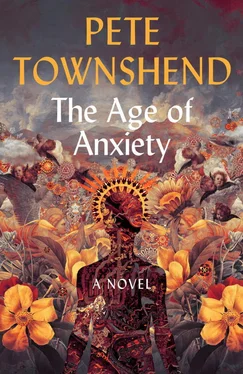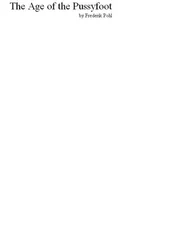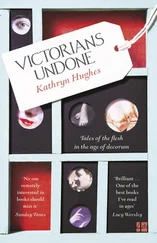“No.” I tried to reassure him. He was getting terribly upset. “It doesn’t sound crazy, and it’s obviously very serious, to you at least.”
He didn’t reply.
“Walter?” I reached out to him gently; I had not seen my godson looking so vulnerable since he’d been a small boy. He sat with his hands in his lap, like a boy outside the headmaster’s study awaiting a punishment of some kind. He looked up into the air, at the ceiling, then to his left and right.
“I can hear it now , Uncle Louis,” he said, his voice almost breaking into a sob. “It feels like a kind of mental attack. I feel like calling this a sound attack. When I talk about it, or think about it, it comes back, I hear it again and I think it comes from the fans at the front.”
“Who else have you spoken to about this?” Walter was married to a beautiful Irish girl a year or two older than he was, called Siobhan Collins. “What about Siobhan?”
“I’ve spoken to her about it.”
“What does she say?”
“She isn’t wild about anything to do with the band, to be honest. All those pretty girls down the front. Anything to do with my band work is hard for her. She thinks I need to do more serious work, to take myself more seriously.”
“You mean she wants you to leave the band?” If I sounded surprised then, I also wondered where Siobhan was coming from—although I thought I probably shared some of her worries. Walter’s manager, Frank Lovelace, was particularly hard-driving, with a large stable of artists. He always had an eye on the big deal, keen to make commission. Walter was pivotal to the band’s success and Frank Lovelace had an overly controlling personality where Walter was concerned.
“I don’t know. She’s never said as much. But she’s Irish!” He laughed again, that musical laughter bringing him back to life for a moment. “She wants me to be the new Seamus Heaney or something.” He shook his head.
Siobhan worked for the BBC in the central newsroom in London. She was in charge of a group of foreign correspondents; one of her team was my daughter Rain.
“Have you spoken to Rain?” It was a silly question. Rain had been away in Afghanistan for a few months.
“Not about all this; listen, Uncle Louis, this has never happened to me before. I feel I’m jacking into thoughts that are coming from the crowd.”
“But it’s what you’re good at, Walter.” I was right, Walter often seemed to hold the audience in the palm of his hand.
“No, this feels very negative. Like I’m hearing their fears, magnifying them.”
“Tuning in to your audience, anticipating them, is what you do. Especially well. It’s what all good artists do. Surely Siobhan is proud of you?”
“She is, but it’s not just the band she feels is beneath me. She thinks clubs like Dingwalls pretend to be better than they are.”
“They pretend to be like an Irish pub with fiddles and pipes and Murphy’s fresh from the brewery?”
Walter laughed. “I’ve been with her to a few of those back in Waterford. They’re pretty wild.”
“I have no doubt they’re full of pretty girls too,” I added.
For just a moment Walter seemed more like his old self. He had always been self-assured and determined, but I could see something had changed in him. We talked for another half an hour. I thought that listening, just listening, was probably better than trying to come up with ideas or grappling for a solution.
He had always told me that whenever he played music he had to listen. In fact, he claimed that good musicians were divided between those who listened and those who simply played. Great musicians did both: played and listened. Walter aspired to that greatness, and lately—when he listened—he had begun to hear these strange sounds that were both unexpected and unwelcome. So he was becoming afraid of this listening; he was terrified he would be unable to continue as a musician working with others.
A police car siren jolted me from my thoughts. I realized I hadn’t asked Walter a very obvious question.
“So haven’t you spoken to Harry?” Walter’s father, my old friend. Harry had been a good father, if rather a distant one. He was, as I say, a successful musician, toured a lot, and seemed to live in an elevated world. Classical organ; Messiaen and Bach. Harry’s wife, Walter’s mother Sally, was also a confidante of mine, telling me about some of their difficulties as a couple.
“I don’t want to worry my dad,” said Walter quietly. “Not yet at least.”
“So you will speak to him?”
When there was something he didn’t want to explain, or reveal, Walter simply said nothing. Now and then he would send a signal that he was considering whether to speak out or not: he would rub the side of his nose while wearing a slightly mischievous expression. Sometimes this would lead to him saying something. Sometimes it would just preface silence.
On this occasion he did speak at last, but I got the feeling he was not saying what he had intended to express. “I think I should probably see a doctor first.” Walter explained that he knew that if he talked to his father, his first response would be to ask if he had seen a doctor.
“Write down your experiences,” I suggested. “It will help if you do see a doctor.”
“What, describe it? Or score it?”
Walter’s technical abilities as a musician were not equal to his father’s. He couldn’t read or write music.
“You know I deal in Outsider Art, Walter.” I laughed. “If you write it down, if you could enable others to get a sense of what you are hearing, you could join the fabulous artists on my roster. As a poet!” I laughed again, forcefully, trying to bring Walter into the present, to lighten what he was feeling.
He sat back and looked away.
“I can describe what I hear,” he said, looking up at me with a sad look. “But I would find it very hard to turn it into music that people could hear.”
I’d known Walter since he was a child. But I knew the way he was perceived by others, by his bandmates, by his fans, by the band’s manager. They saw him as someone who was “merely” handsome, rugged, and cool. He looked like a man who could do pretty well in a fight, but I don’t think many people had any idea of his inner depths.
I’d seen signs of it even when he was a child. He had studied gardening and his dream was to create a maze one day, he said. He told Rain that it might take twenty-five years for a maze to grow thick enough to get lost in—even longer in some cases. Every maze could become a real labyrinth, given enough time and care.
He struck me as a young man who—unlike most of his friends who wanted their desires fulfilled as quickly as possible—understood the joy of waiting for nature to take its course.
“Was there anything else?” I inquired. Walter was holding something back.
Either I’d said the wrong thing or I’d touched a nerve. Walter shook his head and picked up his coat and bag. A shaft of light caught his face and I found myself musing that this new vulnerability would make him even more irresistible to the women he allowed close to him. My daughter Rain had always loved him. The childhood crush had become an unspoken passion. Siobhan had sensed she might be a rival, and as her boss at the BBC always seemed to be packing Rain off to faraway trouble hotspots.
Walter hugged me and smiled his goodbye.
In the winter of that year, 1995, my daughter Rain came to see me at my apartment—I thought for afternoon tea—and, using the door key I had given her, let herself in, crashed her journalist’s attaché case to the floor, slammed the front door, and threw her coat to the ground in the lobby. She strode into my living room, slumped onto the sofa, and with a disgusted look, and without any preamble, announced that Walter was married.
Читать дальше












